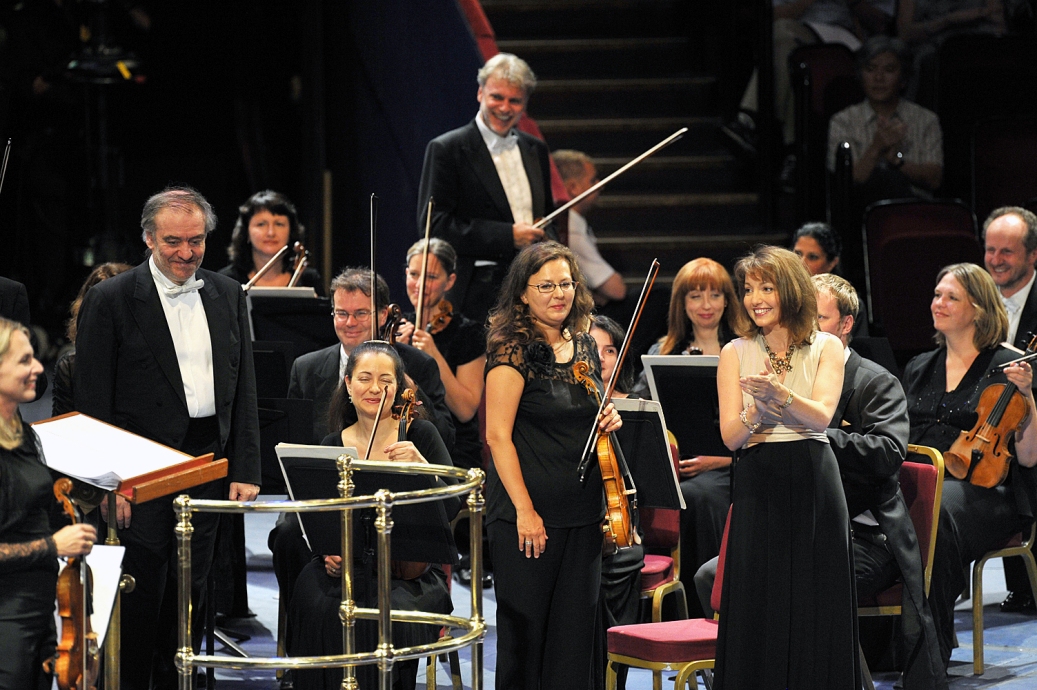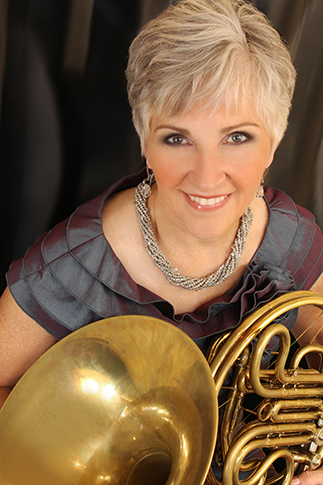This was a rare outing by the World Orchestra for Peace, which has performed fewer than 20 concerts since the death of its founder Sir Georg Solti in 1997. UNESCO had designated this BBC Prom as "The 2014 Concert for Peace", the definite article implying a uniqueness which - according to rumour - is because concerts planned for Munich and Aix failed to get beyond the planning stage. It drew a respectable house to the Royal Albert Hall, which looked about three-quarters full.
This has been a week in which world peace has seemed like a very distant ideal indeed, in which the news has been dominated by the reality, the turmoil and the tragedy of wars: Flight MH17 and the pitched battle in the streets of Gaza. The nearest that such current events got to this concert was that in the hour before the start there had been a protest unrelated to it, with Palestinian sympathizers driving along the main roads around the hall, hooting car horns.
The three works in the programme, by Roxanna Panufnik, Richard Strauss and Mahler, had no overarching theme, but in different ways were smart choices, working well as calling cards for an orchestra with a difference, and not getting lost in the cavernous and unforgiving spaces of the Royal Albert Hall.

Strauss's Symphonic Fantasia from Die Frau ohne Schatten was being played at the BBC Proms for just the second time. It's a fiendishly busy score where the whole orchestra swirls joyously. It also feels like a natural and very satisfying Royal Albert Hall piece, with an important part ideal for the Father Wills organ. The central episode, a massive trombone solo derived from an emotional duet at the start of the opera's third act, was taken with full tone and just the right lyrical fervour by Pierre Volders of the Rotterdam Philharmonic Orchestra.
 The orchestra, to my ears, sounded as if they and Gergiev had been able to commit enough time to produce a performance which was far removed from the nervy edge-of-the seat experience some might have expected. That came through above all in their Mahler, which had shape and heft. Gergiev's recorded Mahler Six is one of the most convincing instalments of his LSO cycle. The instructions zurückhaltend (holding back) and schleppend (dragging) in the final movement brought moments of rhetorical freedom of tempo, in which the orchestra gave Gergiev back exactly what he was expecting: a very clear shape and wonderful unanimity.
The orchestra, to my ears, sounded as if they and Gergiev had been able to commit enough time to produce a performance which was far removed from the nervy edge-of-the seat experience some might have expected. That came through above all in their Mahler, which had shape and heft. Gergiev's recorded Mahler Six is one of the most convincing instalments of his LSO cycle. The instructions zurückhaltend (holding back) and schleppend (dragging) in the final movement brought moments of rhetorical freedom of tempo, in which the orchestra gave Gergiev back exactly what he was expecting: a very clear shape and wonderful unanimity.
The orchestra is hand-picked from several orchestras worldwide, and there were some superb individual contributions. The Chicago Symphony Orchestra's tuba principal Gene Pokorny gave gravitas and heft to the Panufnik, and anchored some key moments of the Mahler with true authority and massive tone. The principal horn in the Mahler, Gail Williams (pictured above left), who spent many years with that same orchestra, was impeccable. And some sections put in a strong showing too. If the double basses in the Mahler had spring and Schwung in their step, then that was at least in part down to the febrile vigour of their principal, the young and charismatic Sophie Lücke from Munich. Her energy brought the light of hope to what has been a very dark week.
- Recorded for television broadcast by BBC Four on 14 August.














Add comment